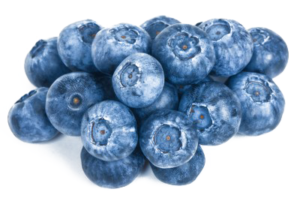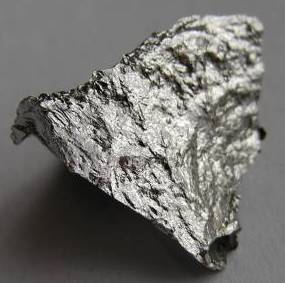 A recent study found that significantly increasing dietary fiber intake after a diagnosis of colorectal cancer was associated with a lower death rate - from both colorectal cancer and overall mortality (from any cause). The 1575 men and women (all healthcare professionals) in the study had received a nonmetastatic colorectal cancer diagnosis (it had not spread beyond the colon), and the follow-up was about 8 years. These results were from food, not supplements.
A recent study found that significantly increasing dietary fiber intake after a diagnosis of colorectal cancer was associated with a lower death rate - from both colorectal cancer and overall mortality (from any cause). The 1575 men and women (all healthcare professionals) in the study had received a nonmetastatic colorectal cancer diagnosis (it had not spread beyond the colon), and the follow-up was about 8 years. These results were from food, not supplements.
How much did extra dietary fiber lower the death rate? For each additional 5 grams of fiber added to their daily diet (after diagnosis) was associated with a 18% lower colorectal cancer death rate, and a 14% lower death rate from any cause. In this study, whole grains, especially in cereals, were found to be the most beneficial. Current dietary guidelines recommend a fiber intake of 25 to 38 grams per day, but most Americans eat far less. Dietary fiber is found in plant foods, such as beans, whole grains, nuts, seeds, vegetables, and fruits. Plant fiber feeds the millions of gut microbes, especially beneficial microbes (here, here, and here) - something that was not really discussed in the study.
The researchers pointed out that a high fiber diet (especially from whole grains and cereals) is linked to a lower risk of getting colorectal (colon) cancer in the first place. Also, that "higher intake of fiber, especially cereal fiber", has been linked to improved insulin sensitivity, reduced inflammation, type 2 diabetes, cardiovascular disease, and total mortality. Other studies have found that vitamin D supplementation, exercise, and eating fish all increase survival from colorectal cancer. From From Medical Xpress:
Fiber-rich diet boosts survival from colon cancer
A diet rich in fiber may lessen the chances of dying from colon cancer, a new study suggests. Among people treated for non-metastatic colon cancer, every 5 grams of fiber added to their diet reduced their odds of dying by nearly 25 percent, said lead researcher Dr. Andrew Chan. He is an associate professor in the department of medicine at Harvard Medical School.
"What you eat after you've been diagnosed may make a difference," Chan said. "There is a possibility that increasing your intake of fiber may actually lower the rate of dying from colon cancer and maybe even other causes." Chan cautioned, however, that the study does not prove that the additional fiber caused people to live longer, only that the two were associated.
Fiber has been linked to better insulin control and less inflammation, which may account for better survival, he suggested. In addition, a high-fiber diet may protect people from developing colon cancer in the first place. The greatest benefit was attributed to fiber from cereals and whole grains, according to the report. Vegetable fiber was linked to an overall reduction in death, but not specifically in death from colon cancer, and fiber from fruit was not linked to a reduction in death from any cause.
For the study, Chan and his colleagues collected data on 1,575 men and women who took part in the Nurses' Health Study and Health Professionals Follow-up Study, and who had been treated for colon or rectal cancer that had not spread beyond the colon. Specifically, the study looked at total fiber consumption in the six months to four years after the participants' cancer diagnosis. The researchers also looked at deaths from colon cancer and any other cause. In an eight-year period, 773 participants died, including 174 from colorectal cancer. [Original study.]

 Another
Another  For years studies have suggested that eating blueberries and other berries is good for our health (
For years studies have suggested that eating blueberries and other berries is good for our health ( Interesting study finding - that both high and low levels of magnesium is associated with a higher risk of dementia. Magnesium is an essential mineral needed for more than
Interesting study finding - that both high and low levels of magnesium is associated with a higher risk of dementia. Magnesium is an essential mineral needed for more than  The following study was presented at the recent annual meeting of the Infectious Diseases Society of America. A study of women prone to recurrent urinary tract infections (UTIs) found that increasing daily fluid intake by 1.5 liters of water a day (about three 16-ounce glasses) in addition to their usual daily fluid intake - had a reduced incidence of UTIs that year by 48%, as compared to women who drank their usual daily fluid amount (1.2 liters).
The following study was presented at the recent annual meeting of the Infectious Diseases Society of America. A study of women prone to recurrent urinary tract infections (UTIs) found that increasing daily fluid intake by 1.5 liters of water a day (about three 16-ounce glasses) in addition to their usual daily fluid intake - had a reduced incidence of UTIs that year by 48%, as compared to women who drank their usual daily fluid amount (1.2 liters). OK, this study was done in mice, but it's the kind of
OK, this study was done in mice, but it's the kind of  Two studies looked at manganese and found that high levels are associated with problems. Manganese is an essential trace mineral necessary for development, metabolism, the antioxidant system, and for normal brain and nerve function. Getting manganese through foods (e.g. nuts, seeds, whole grains) is beneficial, but ing
Two studies looked at manganese and found that high levels are associated with problems. Manganese is an essential trace mineral necessary for development, metabolism, the antioxidant system, and for normal brain and nerve function. Getting manganese through foods (e.g. nuts, seeds, whole grains) is beneficial, but ing Another study finding that diet (what one eats) can work just as well as medications for a health condition - this time for one form of acid reflux disease. The
Another study finding that diet (what one eats) can work just as well as medications for a health condition - this time for one form of acid reflux disease. The  It seems like I can't stop writing about coffee (
It seems like I can't stop writing about coffee (